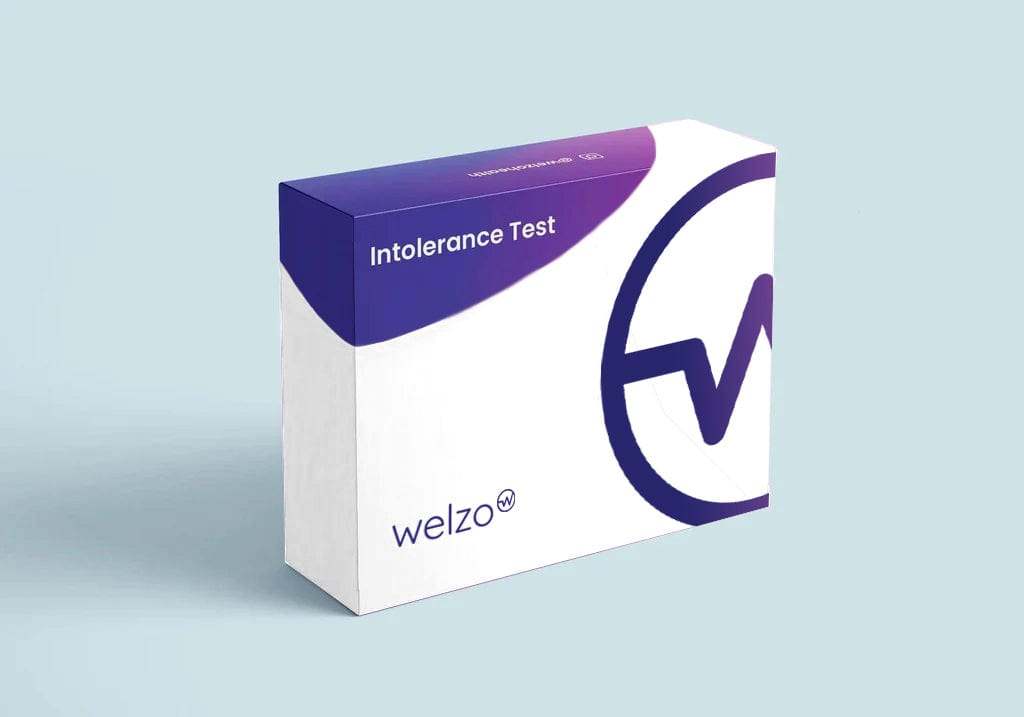Food Intolerance Test
Are you tired of suffering from the uncomfortable symptoms of food intolerances, such as bloating, headaches, and digestive issues? Do you want to identify the foods that are causing your symptoms so that you can make informed dietary choices? If so, the Welzo Food Intolerance Test may be right for you.
The Welzo Food Intolerance test is a simple, non-invasive way to identify any food intolerances that you may have. Using just a few strands of your hair, our team of experts will analyse your sample and provide you with a detailed report that identifies any foods that you are intolerant to.
- Test for over 975 items tested, including foods & non-food reactions, metals, nutrition, gut biome & digestive enzymes
- Your PDF report emailed to you detailing your results.
- Free 6-week food diary download.
- Guaranteed results or your money back
You will receive a PDF form upon placing an order via email. Please download this and send your sample back in a sealable bag including the form provided and we'll do the rest.
- 975 items tested for
- Food sensitivities
- Mineral analysis
- Additives, colourings, sweeteners
- Food intolerances
- Vitamin A-K
- Digestion Analysis
- Environmental items
- Emulsifiers Tested
- Non-food sensitivities
- Free 6 weeks food diary
- Gut health
- Metal sensitivities
Don’t just take our word for it
- Biomarkers
- Information
Food specific IgG
Food items tested
Nutritional tests
Hormonal imbalances
Non-food items tested
Metals tested for
Gut biome tests
Digestive Health & Metabolism Analysis
Have you been feeling any of these symptoms lately?
Additional Information
Why take a test?
The Food Intolerance test will detect if you have any allergy to common food items such as tea, coffee, cow milk, pork, egg white, egg yolk, almond, wheat, gluten, oat and more specific food. Specific food items include Beef, pork, chicken, lamb, egg whites, egg yolk, cod, salmon, shrimp, crab, cow’s milk, casein, Spelt, wheat, rye, oats, rice, potato, Hazelnut, peanut, almond, soya, walnut, mustard, apple, orange, strawberry, kiwi, peach, banana, tomato, carrot, celery, onion, gluten, coffee, sesame, pepper (black), baker’s yeast, etc.








How to take your home hair test
-

Order your test
Order your home intolerance test. You will recieve a unique order number via email that can be used to download your return form.
-

Take a hair sample
Download your return form PDF sent to you via email. Take 5 - 7 strands of hair and place them in a sealable bag/envelope. Then return your sample to our lab for analysis.
-

Results within 3 - 5 days
Recieve your results via email in 3 to 5 working days. This will include a detailed report on active changes you can make to optimise your lifestyle.
Experts Opinion on Food Intolerance Tests
"Allergies can have a lot of impact on people. This panel will give you an idea of any specific foods causing allergies and you can therefore adjust your diet accordingly to minimise your risk of getting allergies."
Understanding the Welzo Intolerance Tests
Watch this video to understand how intolerance tests work and how to collect your sample.

Why Welzo
Welzo health tests are shipped straight to your address the very next day.
We are a team of doctors and scientists, making cutting edge analysis accessible.
We issue results 24/7, giving you personal insights into your body.

















 Rated Excellent by 26,523+ Reviews
Rated Excellent by 26,523+ Reviews